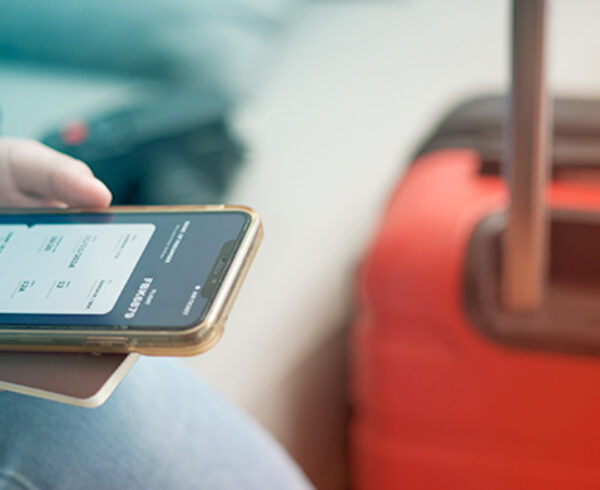Millennials are a bit of a fascination. Born between 1980 and 2000, this group of young people eschews landlines, and they probably wouldn’t know how to use a rotary-dial phone. They’ve never lived without the Internet or cable television, and they love to consume news and socialize online.
And, today, Millennials make up a big chunk of the workforce.
In fact, by 2020, millennials will make up about 50% of the global workforce, and they will incur about half of all business travel expenses.
Will millennials change business travel as they become a larger and larger portion of traveling professionals? Or will it be business as usual for travel managers who work with millennials?
Here’s a look at 5 key facts about millennials and business travel to help travel managers as they deal with a new generation of team members.
1. They Embrace Business Travel — Challenges and All
If you think millennials will be reluctant to hit the road for work, think again. A 2016 report from MMGY Global indicates that 48% of millennials wish they could travel even more for work. This might not seem like a huge portion of millennials, but it’s a far greater number than members of Generation X (40%) or Baby Boomers (26%).
Millennials go into business travel with eyes wide open, too. More than 60% reported believing that business travel has “a negative impact on family life.” While the suggestion that business travel has a negative impact on family might be overstated, traveling for work does undoubtedly create challenges that non-traveling team members don’t experience.
What about international travel? Millennials are up for that, too. Less than half of all Generation X members and Baby Boomers report having a valid passport, while about 75% of millennials have their passports up to date and ready to go.
2. They Find Time for Leisure
There’s a fairly new term in business travel — “bleisure.” It’s not exactly pleasing to the ear, but millennials love it. The term is a blend of the words “business” and “leisure,” and it’s one of the reasons why millennials don’t mind hitting the road for work.
Millennials will often look for opportunities to extend work trips so that they can stay for the weekend and do something cultural, experience-driven or just plain fun. Companies should view this approach to business travel as a good thing. The downtime and the personal satisfaction that comes with the blend of business and leisure can help team member recharge, reenergize and be more productive when they’re back at work.
That said, it’s important that travel managers work through issues of duty of care, insurance and policy before greenlighting add-on days to work trips.
Here’s something surprising about millennial business travelers: They still want face-to-face meetings, and they still see the value in them.
3. They Drive the Sharing Economy
The sharing economy can mean big savings for companies. And millennials are much more likely to embrace car- and home-share services than members of other generations.
While only 30% of all respondents to the MMGY Global survey indicated that they had used a car-share service like Uber or Lyft, 81% of all millennials had used one of the services. In fact, 76% of millennials even preferred car-share services to car rental
The same holds true for home-share services. While only 40% of all employees expressed interest in home-share services while traveling for business, about 70% of millennials expressed interest.
4. They Love New Technologies
Change management can be difficult for seasoned business travelers. For example, if a company is moving from an old school travel agency or self-booking to an managed online business travel platform, it’s going to be the older and more experienced team members who have a hard time with the transition.
But that’s not the case with millennial employees. They love new technology, often recognizing how it makes certain tasks more efficient or life a little easier in general. This is a good thing for businesses that are choosing travel technologies as a means to streamline processes and controls costs. These travel technologies often allow team members greater flexibility and the chance to customize their travel experience — all things that millennials love.
5. They Still Prefer Face-to-Face
Here’s something surprising about millennial business travelers: They still want face-to-face meetings, and they still see the value in them. This may seem at odds with the reputation millennials have for preferring social media and digital communication to human interaction.
As a travel manager, this should provide momentum for your work in both the short- and long-term. Every study available and every trend evident in the industry suggests that business travel isn’t going anywhere, but, rather, that it’s more likely to grow in the future.
Is your company ready for that growth? If you’ve been putting off the adoption of new travel technologies, waiting to update travel policies or otherwise holding off on taking action, now is the time. And, for more reading on how travel will evolve and change this year, see our post on 2018’s global travel forecast for businesses.
Let JTB Business Travel Help
As a travel manager, you’re working across departments and with team members from various generations. Doing what’s best for the company, for its employees and for the bottom line can be difficult.
At JTB Business Travel, we can help. As your comprehensive corporate travel agency, we provide tools, technologies, resources, services and recommendations that can help you accommodate your team members and get the best return for your investment on travel. Behind everything we do is a common sense approach to business travel.
Contact us today and learn how we can help your company make the most of its business travel.














Leave a Comment